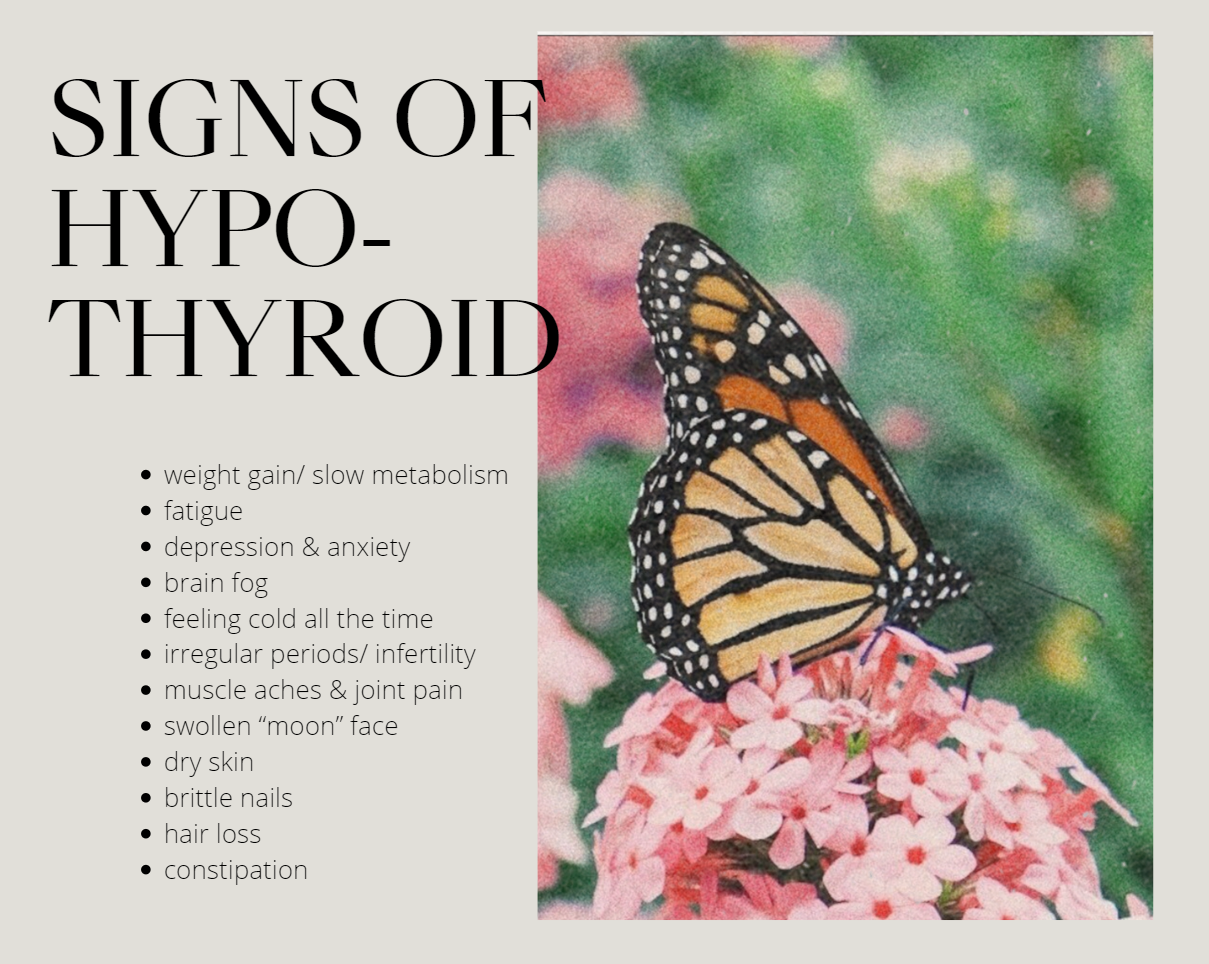It’s Not “Just Stress”: Understanding the Thyroid-Gut-Hormone Connection
If you’ve been on the health & wellness side of social media for any amount of time, you’ve probably heard that “it’s all connected”. And while that phrase may conjure memories of this fabulous meme…
…it is * actually * all connected, especially when it comes to health issues like painful periods, PCOS, weight gain, fatigue, breakouts, mood swings, hair loss, and mental health.
All of our body’s systems interact in a complex (and beautiful) symphony. But when chronic stress, toxins, and inflammation creep in, it affects all the systems, too.
What I most often see in my practice are symptoms that involve the thyroid, gut, and hormones- and they normally all drive each other! Let’s take a deeper look at each of these systems and how they interact.
Getting to Know Your Cycle
While men only have their 24 hour circadian rhythm, we women have a second 28-day infradian rhythm that has four distinct phases- menstrual, follicular, ovulatory, and luteal. If you were taught growing up that you’re either on your period or not, that binary view simply isn’t true!
Think of your cycle like a mini year with four seasons- the menstrual phase (when you’re actively bleeding) is winter, the follicular phase is springtime, your ovulation window (3-5 days) is summer!!! and the luteal phase is your cozy inner autumn.
Your cycle is driven mainly by three hormones: estrogen, testosterone, and progesterone (there is also luteinizing hormone and follicle-stimulating hormone but that’s for another time).
Now lets meet the leading ladies that orchestrate your cycle (and dive into what happens when one of them is out of balance):
Gut Health- Your Second Brain
Did you know that the organisms living in your gut outnumber your own cells 10 to 1?! Before you freak out, most of them are beneficial and we have a mutually beneficial relationship with them. Several strains of “good” bacteria in your gut are responsible for:
helping to synthesize important vitamins from your diet like vitamin K2, B1, B9, B12, biotin, folate, and thiamine
producing serotonin, GABA, dopamine, and norepinephrine (up to 80% or serotonin- your “happy hormone”- is produced in your gut!
producing metabolites like short-chain fatty acids that help your body regulate inflammation and support immunity
process excess estrogen to remove it from the body (this group of bacteria is called your estrobolome)
converting inactive T4 thyroid hormone to its active counterpart, T3
Ancient healing traditions point to the gut as the root of most illness, so it’s no wonder that having an imbalanced gut directly impacts your cycle and thyroid health!
When your gut has been compromised through intestinal permeability (“leaky gut”) and dysbiosis (overgrowth of “bad” bacteria), you can’t digest the important nutrients from the amazing diet you’re eating! So even though you’re hitting your protein, fiber, and micronutrient goals, your body isn’t able to USE most of it.
From your body’s point of view, you’re in starvation mode. This triggers your thyroid to slow everything down- your metabolism gets slower, your energy drops, and your cycle can go missing. To add insult to injury, those bad bacteria thrive off of high fat and sugar, so you crave junk food and get bloated more easily!
Healing you gut lining so that food stays inside your digestive tract and can be properly utilized is one of he foundations for the majority of my clients. In our modern world, the use of birth control, endocrine-disruptors, pesticides, heavy metals, and parasites can all contribute to a compromised gut.
Thyroid Health- Your Body’s Thermostat
Your thyroid is the butterfly-shaped gland that sits over your esophagus (fun fact: Chrysalis Wellness got its name as a nod to that butterfly in our throats!). The thyroid acts as your body’s thermostat- controlling your metabolism, heart rate, body temperature, speed of digestion, and maintaining healthy hair, skin, and nails.
Stress very easily influences the thyroid, unfortunately. It is deeply connected with the HPA (hypothalamus-pituitary-adrenal) axis, so when you hear people refer to having “high cortisol”, those symptoms are often tied to the thyroid as well. Being stuck in “fight or flight” exhausts both your adrenals and your thyroid.
When your body senses a threat, it starts to convert your thyroid hormone into an inactive form called reverse T3. This reverse T3 blocks the cell receptors where active T3 should go- so now your thyroid can’t really do its job!
While some people can develop hyper-thyroidism (think racing heart, losing weight, more anxious, diarrhea, etc), by far the more common issue is hypo (low) thyroid.
When your thyroid function drops, it affects peristalsis- the contractions that move food through your digestive tract. This causes constipation and slow motility! Low thyroid also impacts your cycle which can lead to irregular periods, depression, lack of ovulation, and exacerbated PCOS or endometriosis.
By now, you might be getting the sense that it doesn’t matter which of these systems gets imbalanced first, they all impact each other. This means that as we start improving one area, all areas improve!
Here are my top 5 tips to start to address these issues:
Detox Your Environment: eliminate endocrine disruptors like artificial fragrance, harsh cleaning chemicals, and processed foods
Slowwww Down: if you’ve been over-exercising (HIIT classes 3x a week) and running from task to task all day every day, focus on low-impact movement and implement a screen-free wind down routine before bed.
Focus on Fiber & Protein: most women don’t get enough protein, so aim to get 90g daily (30g at each meal). Slowly ramp up your fiber intake from a variety of plant sources until you hit 30g daily.
Add Thyroid-Loving Foods: 2 Brazil nut daily for selenium, pumpkin seeds for zinc, and seaweed for iodine
Deeply Hydrate: utilize electrolytes or an adrenal mocktail with coconut water and celtic sea salt






